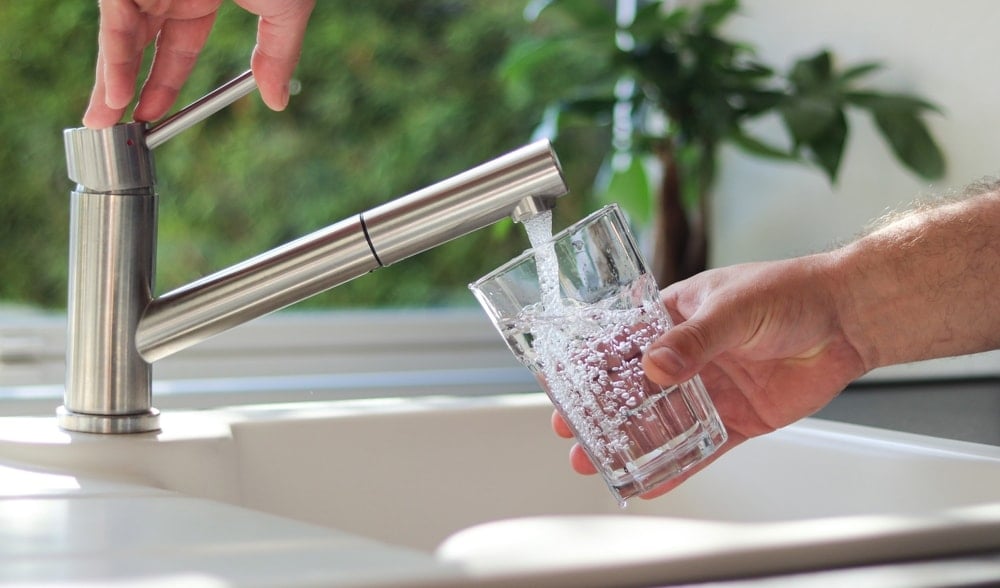Are you tired, tense, restless? This could be the reason

Increasing temperatures with the onset of summer significantly affect the body's need for water.
Increased sweating and body temperature regulation are among the main reasons for the increase in water need in the summer months.
Experts made an assessment about water consumption, which has positive effects on the mental as well as physical benefits.
Stating that it is not right to wait to feel thirsty, especially in the summer months, Nephrology Department Specialist Dr. Merve Aktar emphasized that drinking water at regular intervals before the feeling of thirst occurs is the most effective way to prevent dehydration (lack of body water).
Stating that the ideal amount of water for adults varies between 2.5 and 3.5 liters per day, Aktar noted that water needs vary according to age, activity level and special situations.
Aktar, mentioning that beverages such as tea and coffee cannot replace water, said, "Beverages containing caffeine can cause the body to lose water. Caffeine causes the body to excrete 150 milliliters of water for every 100 milligrams. Therefore, it is recommended to drink 2 glasses of water after 1 cup of Turkish coffee. They cannot replace water, on the contrary, they can cause the body to need more water."

Commenting on the benefits of water for general health, Aktar said, "It prevents joint pain and increases mobility. It helps vitamins and minerals reach the cells. It supports the kidneys and liver in cleaning toxins. It makes the skin look younger and more vibrant. It prevents constipation and contributes to the regular functioning of the digestive system."
Aktar said that there are some early signs that show that the body is dehydrated, and added, "When you notice signs such as lack of concentration, headache, muscle cramps, dark yellow urine, bad breath, constipation, and sudden mood changes, you should immediately increase your water consumption."
Stating that long-term and insufficient water consumption can lead to serious health problems such as increased risk of kidney disease and stone formation, potential increase in cardiovascular problems, general morbidity and mortality risk, Aktar noted the following regarding the relationship between water and mental performance:

"Dehydration can directly affect mental performance. Recent published studies have shown that even mild dehydration has significant effects on cognitive function. This can include decreased attention and concentration, potential impact on memory and learning processes, and negative effects on mood and cognitive flexibility."
Aktar, drawing attention to the importance of water consumption for mental health, said, "Chronic dehydration can cause a 30 percent increase in the risk of anxiety. A 25 percent increase in depression symptoms can be seen. It can lead to a 40 percent decrease in sleep quality. Adequate water helps balance mood and reduce stress."

Aktar stated that forgetting to drink water is a common situation in a busy work tempo, and said, "Office workers can take 3 sips of water with every e-mail notification, take a water break at the beginning of a meeting, or put a water drop sticker on their computer screen. These can serve as reminders.
It is possible to increase water consumption by using technology and creativity. Setting vibration alerts with smart bracelets, using plant growing applications where virtual plants grow with every drink of water, using thermostatic cups that change color, and trying locked phone applications that open as you drink water can also support consumption," he said.

Nutrition and Dietetics Specialist Dietician Safiye Keskin also said that it is not right to stick to the feeling of thirst, that she recommends planned water consumption, and that the habit of drinking 1 glass of water every hour should be developed.
Regarding the effects of long-term dehydration on the body, Keskin said, "Chronic inadequate fluid intake increases the risk of kidney stones and chronic kidney disease. Stool softness decreases and causes constipation. Water maintains the elasticity and moisture of skin cells. Dehydration makes the skin appear dull, dry and pale. Approximately 75 percent of the brain consists of water.
"Adequate water intake reduces mental fatigue and optimizes cognitive functions such as perception, decision-making, and attention span. When not enough water is consumed, reaction time increases, memory capacity decreases, and mental fatigue increases. For those working in an office environment or students, keeping water on their desks and drinking water during breaks ensures sustainability of hydration," he said.

Keskin said that water reminder apps, visual reminders and flavoring water with lemon, cinnamon sticks or fruit slices will help those who have difficulty drinking water, and that it is also important to aim to finish 1.5-2 liter water bottles throughout the day.
Keskin said, "Water that is lukewarm or at room temperature should be preferred. Drinking very cold water quickly can cause stomach cramps and trigger migraines in sensitive individuals. The risk of throat infections may increase."
Keskin, who also drew attention to the importance of water in mental health, said, "Dehydration is associated with psychological symptoms such as anxiety, low stress tolerance and restlessness. Drinking water can have a meditative effect, especially when done with awareness."
SÖZCÜ



